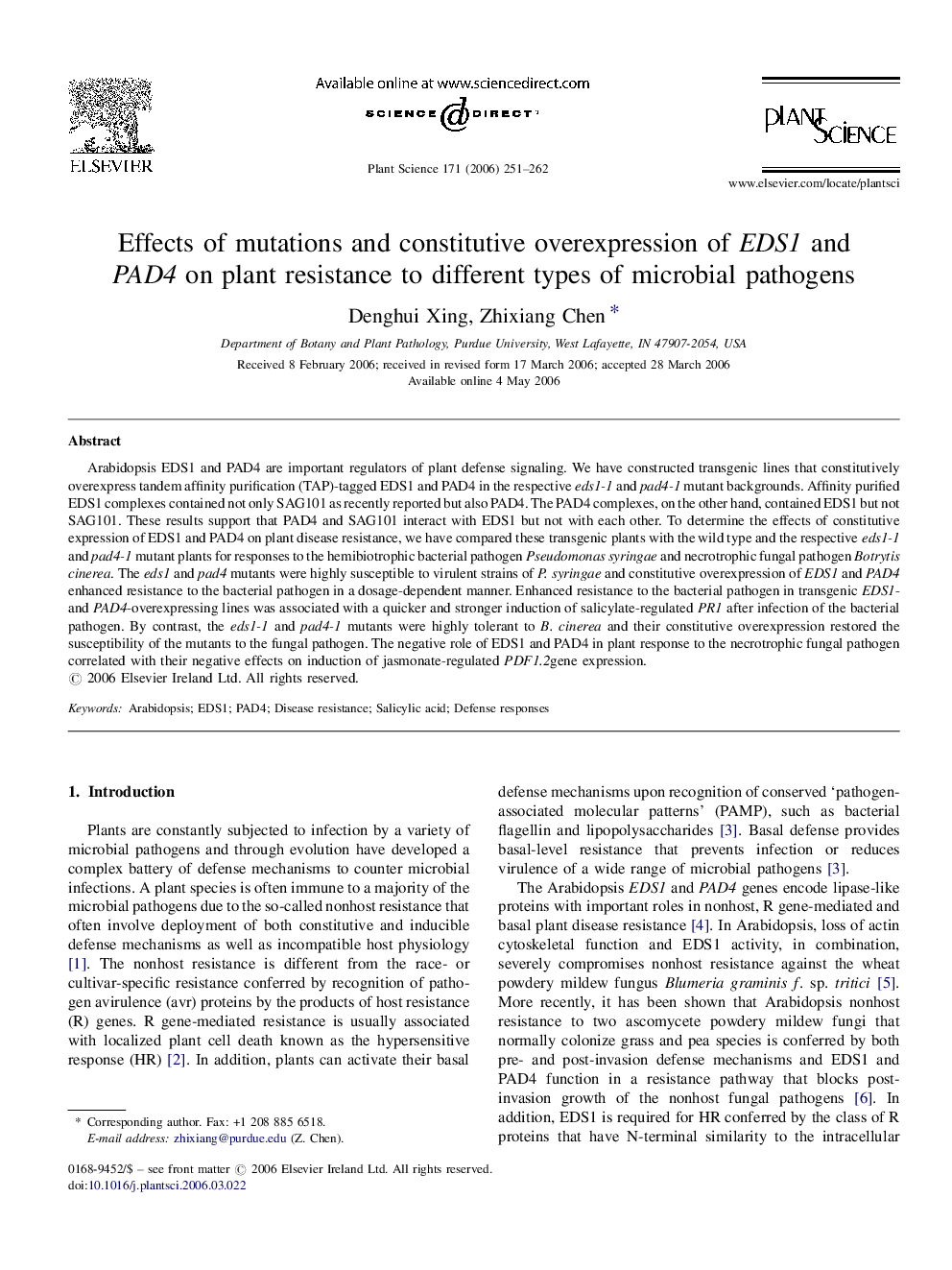| Article ID | Journal | Published Year | Pages | File Type |
|---|---|---|---|---|
| 2018843 | Plant Science | 2006 | 12 Pages |
Arabidopsis EDS1 and PAD4 are important regulators of plant defense signaling. We have constructed transgenic lines that constitutively overexpress tandem affinity purification (TAP)-tagged EDS1 and PAD4 in the respective eds1-1 and pad4-1 mutant backgrounds. Affinity purified EDS1 complexes contained not only SAG101 as recently reported but also PAD4. The PAD4 complexes, on the other hand, contained EDS1 but not SAG101. These results support that PAD4 and SAG101 interact with EDS1 but not with each other. To determine the effects of constitutive expression of EDS1 and PAD4 on plant disease resistance, we have compared these transgenic plants with the wild type and the respective eds1-1 and pad4-1 mutant plants for responses to the hemibiotrophic bacterial pathogen Pseudomonas syringae and necrotrophic fungal pathogen Botrytis cinerea. The eds1 and pad4 mutants were highly susceptible to virulent strains of P. syringae and constitutive overexpression of EDS1 and PAD4 enhanced resistance to the bacterial pathogen in a dosage-dependent manner. Enhanced resistance to the bacterial pathogen in transgenic EDS1- and PAD4-overexpressing lines was associated with a quicker and stronger induction of salicylate-regulated PR1 after infection of the bacterial pathogen. By contrast, the eds1-1 and pad4-1 mutants were highly tolerant to B. cinerea and their constitutive overexpression restored the susceptibility of the mutants to the fungal pathogen. The negative role of EDS1 and PAD4 in plant response to the necrotrophic fungal pathogen correlated with their negative effects on induction of jasmonate-regulated PDF1.2gene expression.
